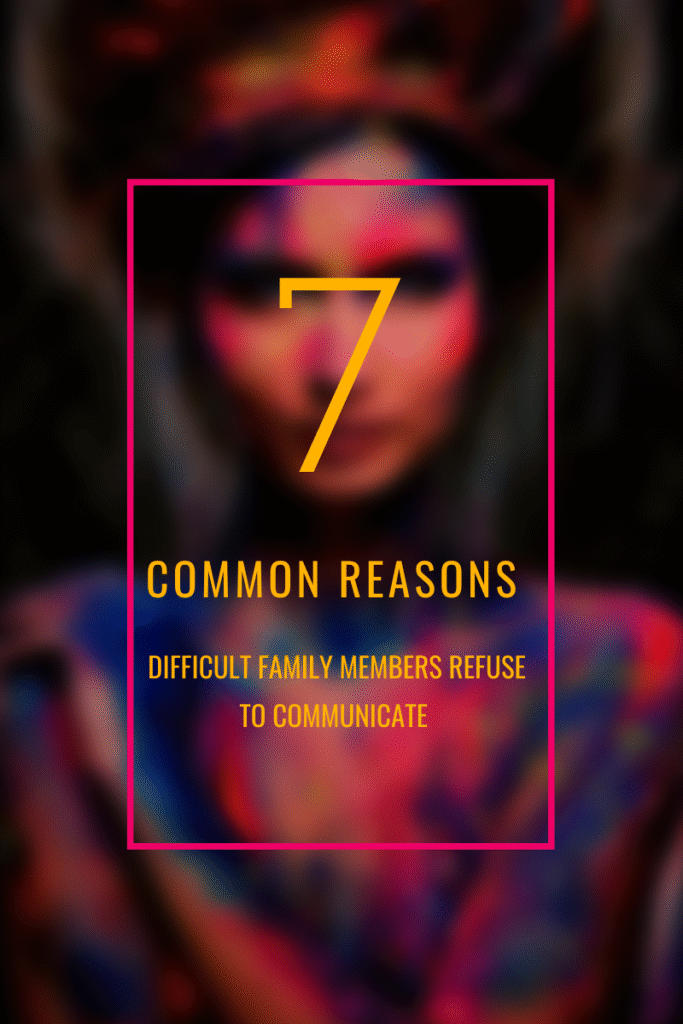Family Drama – Episode 1
Like most people, I have trouble with my in-laws. Of course, everyone’s situation is different, and therefore how we approach each situation is equally different. But for those of you who, like me, have an in-law (or parent) who refuses to listen, shuts down the moment the truth comes out, or just defies reality altogether, and have tried, for years, in every possible way to communicate; don’t throw in the towel just yet.
In order to understand why these parental individuals shut down, argue, or explode the moment you try to have a calm, rational conversation, we must first understand why they are behaving that way.
In part 1 of this blog series, Family Drama, I discuss some reasons that difficult family members are unable and unwilling to communicate. In part 2, I will discuss methods that can help.
Why People Get Angry When Told the Truth – A Psychological Perspective
1. Ego Defense (Freud’s Defense Mechanisms)
- Why: Truth can threaten a person’s self-image or ego. To protect themselves, they respond with anger as a defense.
- Example: Telling someone they’re being controlling might trigger their denial and lead to lashing out.
2. Cognitive Dissonance
- Why: When someone hears a truth that contradicts their deeply held beliefs, they experience discomfort (dissonance) and may respond with anger to reduce that tension.
- Example: If someone sees themselves as generous but is told they’re selfish, it causes inner conflict.
3. Shame Reaction
- Why: Truth can trigger feelings of shame or inadequacy. Anger becomes a shield against those painful emotions.
- Example: Criticism about parenting might make someone feel like a bad parent — their anger is really shame.
4. Perceived Attack or Judgment
- Why: Even if you’re being honest, the truth may sound like a personal attack if not communicated gently.
- Example: “You’re always late” might be heard as “You’re irresponsible and inconsiderate.”
5. Loss of Control or Power
- Why: Some people rely on denial or control to maintain a sense of order. Truth challenges that control.
- Example: Confronting a manipulative person can provoke anger because it threatens their tactics.
6. Emotional Immaturity or Low Emotional Intelligence
- Why: Not everyone has the tools to process difficult emotions. Anger becomes a default.
- Example: Someone might explode when hearing feedback because they never learned how to tolerate discomfort.
7. Triggering of Past Trauma
- Why: Honest feedback may echo past criticism, abuse, or neglect, even if unintended.
- Example: Someone who grew up being harshly judged may interpret even kind truths as an emotional threat.
- Emotional history: Long-standing dynamics or past hurt resurface quickly.
- Roles and power: They may feel threatened, especially if they’re used to being “right” or in control (e.g., parents).
- Fear of conflict or rejection: Some people avoid emotional conversations to “keep the peace.”
- Unspoken family rules: Some families unconsciously send the message: “We don’t talk about difficult things.”
That’s great! We’ve broken down their behavior into bite-sized, distinct, and identifiable reasons. Now that we have a better understanding of what’s going on, let’s move forward with Part 2 of this series (coming soon), where you’ll learn proven methods to help family members communicate.



